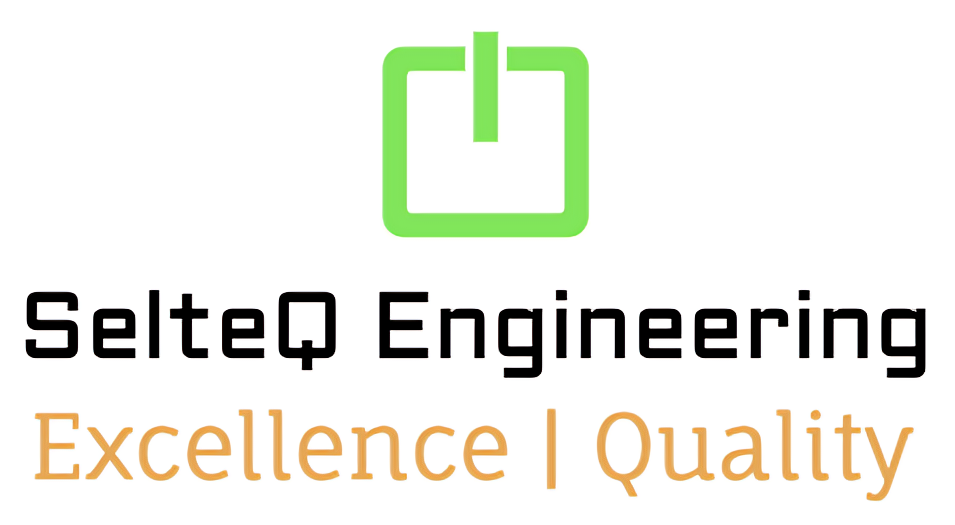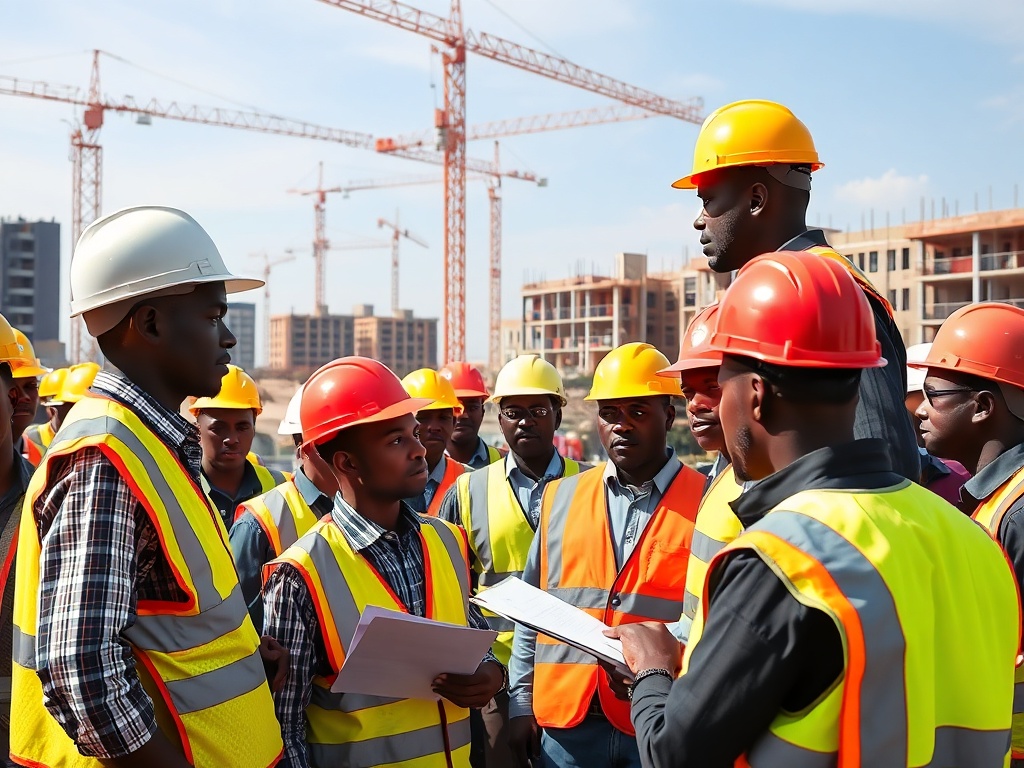Imagine a bustling construction site in Nairobi. Cranes stand tall against the skyline. Workers move with purpose. Suddenly, everything grinds to a halt. An avoidable accident has occurred. Work stops completely. This scenario highlights a critical need. Proactive safety inspections are the ultimate defense. They protect your project timeline and budget. This is especially true for Kenya’s construction industry. This article explores this vital connection. We will show how consistent safety protocols prevent massive financial losses.
Understanding the True Cost of Downtime
Downtime is more than just a paused project; it is a significant financial drain. Every day of inactivity costs money. These costs quickly spiral out of control. Labor costs accumulate with zero productivity. Project deadlines are missed, triggering penalty clauses. Client trust and company reputation suffer immensely. Equipment rentals sit idle, burning capital. These direct losses are just the beginning. The true impact runs much deeper for any business.
The Hidden Financial Drains
Several hidden costs accompany project stoppages. Legal fees can skyrocket after an incident. Insurance premiums often increase dramatically. Employee morale and productivity typically plummet. The cost of repairing damaged structures adds up. These factors combined can cripple a company’s finances. Therefore, preventing downtime is not just prudent; it is absolutely essential for survival and growth. This is the core value of rigorous safety inspections.
How Safety Inspections Act as Your First Line of Defense
Safety inspections are a proactive, not reactive, process. They systematically identify potential hazards. Trained experts examine equipment, structures, and workflows. They ensure compliance with all Kenyan regulations. This process finds problems before they cause accidents. It is a powerful predictive tool. Think of it as a medical check-up for your construction site. It diagnoses issues early, allowing for simple, cheap fixes. This prevents catastrophic system failure later.
Preventing Accidents Before They Happen
Regular safety inspections directly prevent onsite accidents. They identify faulty scaffolding or electrical risks. They check for inadequate fall protection systems. Inspectors also assess structural integrity concerns. Addressing these issues immediately is crucial; it protects your most valuable asset: your workforce. A safe worker is a productive worker. This proactive approach fosters a strong safety culture. It demonstrates your commitment to your team’s well-being.
Ensuring Regulatory Compliance and Avoiding Fines
Kenya’s construction industry operates under strict laws. Non-compliance leads to severe consequences. Government bodies can issue heavy fines. They can also mandate a complete work stoppage. This legal downtime is both costly and embarrassing. Professional safety inspections ensure full compliance. They keep your project within legal boundaries, avoiding costly fines and enforced delays. This also builds a positive relationship with regulators.
Why Safety Inspections Must Be Prioritised
Recent research published in the Journal of the Kenya National Commission for UNESCO shows that the cost of implementing health and safety measures significantly influences safety behaviour in Kenya’s construction industry. The study found that compliance costs account for nearly 67% of the variation in on-site safety practices, revealing that many contractors struggle to allocate budgets for essential safety activities such as PPE, trained safety officers, and statutory inspections. It also found that many projects fail to include safety costs clearly in their Bills of Quantities, leading to inconsistent compliance and greater accident risk. This evidence reinforces the need for structured safety inspections as a proactive and cost-saving strategy. By budgeting for inspections early and working with qualified professionals, contractors can prevent costly downtime, avoid legal penalties, and maintain safer project environments.
The Direct Link Between Safety and Project Schedule
A safe site is an efficient site. There is a direct correlation between the two. Proper safety protocols streamline operations and prevent the disruptions that cause delays. When workers feel safe, their focus and efficiency improve. There are fewer unplanned breaks and incidents. Equipment functions reliably when maintained properly. This reliability is a key outcome of consistent safety inspections. It keeps your project moving forward smoothly.
Enhancing Safety with Continuous Improvement
Furthermore, regular safety inspections foster a culture of continuous improvement within the organization. By reviewing and refining safety practices, companies can adapt to new challenges and technologies. The ever-evolving nature of Kenya’s construction industry demands that employers stay one step ahead. Investing in ongoing training and education for staff creates a safer environment, lowering the likelihood of accidents. By updating practices based on inspection feedback, businesses can not only enhance safety but also improve their overall operational effectiveness. In this way, safety inspections become a critical part of an organization’s strategy for sustained growth and success.
Mitigating Equipment Failure and Damage
Construction machinery is a major investment. Unexpected breakdowns cause significant downtime. Safety inspections include comprehensive equipment checks. They assess the condition of cranes, excavators, and hoists. Inspectors also review maintenance records thoroughly. This proactive maintenance prevents mid-project failures and protects the machinery from accidental damage. It saves on huge repair costs and avoids the delays of sourcing replacements.
The SelteQ Engineering Advantage: Beyond Basic Compliance
Why should you choose SelteQ Engineering for this critical service? We go far beyond a simple checklist. Our approach is integrated and data-driven. We understand the unique pressures of Kenya’s construction industry. Our inspectors are highly certified and locally experienced. They provide actionable insights, not just a report. We help you build safety into your project’s DNA. This transforms safety from a cost into a strategic advantage.
Our Comprehensive Inspection Framework
Our safety inspections are thorough and systematic. We assess all aspects of your construction site:
- Structural Integrity: We check foundations, formwork, and shoring.
- Electrical Safety: We inspect temporary installations and wiring.
- Fire Prevention: We verify the presence and condition of fire equipment.
- Machinery and Tools: We ensure all equipment is safe for operation.
- Personal Protective Equipment (PPE): We verify proper usage and availability.
This holistic approach leaves no stone unturned and provides you with complete peace of mind.
A Partner for Kenya’s Growth
SelteQ Engineering is committed to national development. We believe a safer industry builds a stronger Kenya. Our safety inspections support this vision directly. We help prevent the delays that stall national infrastructure. We protect the workers who are building our future. Partnering with us means investing in quality and reliability. It means choosing a leader dedicated to excellence.
Invest in Safety, Protect Your Productivity
The evidence is clear and compelling. Safety inspections are not an optional expense. They are a vital investment in your project’s success. They are the most effective shield against costly downtime. In the dynamic environment of Kenya’s construction industry, being proactive is non-negotiable. Consistent safety protocols safeguard your budget. They protect your schedule and your reputation. Do not wait for an accident to reveal the gaps in your plan.
Don’t let preventable downtime derail your next project. Take proactive control of your site’s safety and efficiency. Partner with the experts who deliver results.
Contact SelteQ Engineering today. Let us schedule a comprehensive safety inspection for your site. Build with confidence, knowing you have the best protection available.

